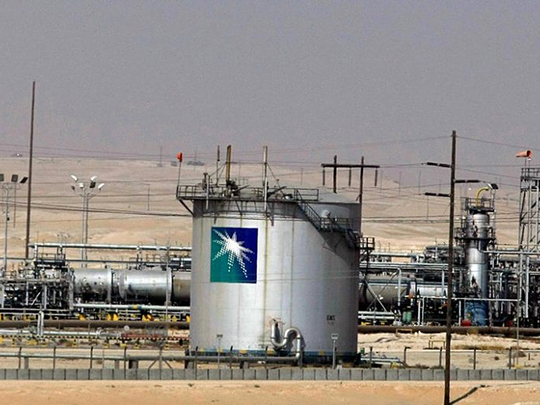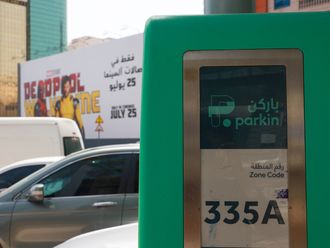
London: For Opec’s production deal to work, it was always clear that Saudi Arabia would need to make sacrifices. The world’s largest oil exporter faces the risk the costs will keep getting bigger.
To bring daily output to the top end of the 32.5 million to 33 million-barrel range agreed to by the Organisation of Petroleum Exporting Countries, the Saudis would only need to make the typical end-of-summer reductions as local demand tapers off, according to Citigroup Inc. If Nigeria and Libya restore production, the kingdom may need to cut twice as much, Petromatrix GmbH estimates. US shale drillers also stand ready to fill any supply gap.
“At this point, the Saudis have shown willingness to cut by an amount that’s equal to their seasonal swing in production,” Petromatrix Managing Director Olivier Jakob said by phone from Zug, Switzerland. “If Libya and Nigeria are out, it’s relatively easy to live by the commitment they made. If Nigeria and Libya don’t falter, it’s going to be extremely difficult.”
Opec’s pledge to reduce production could help speed up the rebalancing of global oil markets, which face a fourth year of oversupply that’s capping prices at $50 a barrel, half the level two years ago and too low for most members to balance their budgets. Yet efforts to rein in the glut by some members, primarily Gulf Arab states, risk being undone by others who consider themselves exempt as they recover from output disruptions.
Seasonal cut
Saudi Arabia, as Opec’s biggest member, has typically borne the bulk of production cuts in the past. With the organisation pumping just over 33.5 million barrels a day in August, reducing volumes to the upper end of the range set in Algiers would involve a daily reduction of just 500,000 barrels.
The Saudis will probably make that adjustment over the next few months regardless of the accord as they lower output once local power demand for air-conditioning fades, said Ed Morse, head of commodities research at Citigroup. Still, that pullback could be eclipsed by Nigeria and Libya, which have signalled they’re excluded from any Opec constraints and together could add a million barrels a day, according to Morse.
Saudi Arabia will likely shoulder the bulk of the production cuts with a reduction of 500,000 barrels a day, while other Gulf states may trim output by 300,000 barrels a day, Neil Beveridge, a Hong Kong-based analyst at Sanford C. Bernstein & Co, wrote in a report Thursday.
Meanwhile, Iran argues it should be allowed to restore production to the level of about 4 million barrels a day achieved before international sanctions curbed shipments. Its output rose by 10,000 barrels a day last month to 3.63 million a day, according to a Bloomberg survey of analysts, oil companies and ship-tracking data.
Expanding output
The survey shows that Opec’s total output climbed to 33.75 million barrels a day, driven largely by gains in Nigeria and Libya.
Nigeria has restored production to 1.7 million barrels a day, up 500,000 from two months ago as it negotiates with militants who have attacked oil facilities, according to Minister of State for Petroleum Resources Emmanuel Kachikwu. The West African country aims to reach 2 million a day by the end of the year, Kachikwu said in an interview on September 27. Production was near the lowest in almost three decades in August.
Libya has revived output to 500,000 barrels a day after striking a deal with armed factions controlling export terminals, and plans to reach 600,000 by the end of October, the country’s National Oil Corp. said Oct. 3. Production slumped to an 18-month low of 260,000 barrels a day in August, according to data compiled by Bloomberg.
Saudi share
Those two nations are pushing Opec output toward 34 million daily barrels, which would require the organisation to cut by 1 million barrels to achieve the Algiers target. That may be a bigger sacrifice than Saudi Arabia is prepared to make as the kingdom refuses to cede market share, according to Petromatrix.
“For all the talk about the new policy, it needs to be proven,” Petromatrix’s Jakob said. “Based on what I’ve seen, I don’t see a full change of policy or commitment.”
The risk that Saudi reductions would have to deepen to counter increases elsewhere had long concerned former Oil Minister Ali Al Nuaimi, the architect of Opec’s pump-at-will policy adopted in late 2014. He retired in May. His successor Khalid Al Falih initially supported the policy but his desire to repair Saudi relations with Opec members, particularly with Iran, as well as his country’s increasing economic pressures, spurred a change of stance.
Shale boost
While the details of the Opec accord and the distribution of cuts among members won’t be resolved until the group’s next meeting in November, the immediate price gains from the deal are benefiting competitors in the US, according to consultants Wood Mackenzie Ltd. West Texas Intermediate crude is up about 11 per cent since Opec reached its supply agreement and the grade traded 0.6 per cent lower at $49.51 a barrel at 12:46pm in Singapore.
“US producers can invest with more certainty going forward,” WoodMac Research Director R.T. Dukes said in a Bloomberg Television interview.
Shale drillers are hedging their price risk for next year, according to banks. Opec effectively threw a “lifeline” to shale producers, according to BNP Paribas SA, while Morgan Stanley said hedging may be at the highest so far this year.
While the Energy Information Administration estimates US crude output has fallen by 752,000 barrels a day so far in 2016, recent data show drilling has picked up in response to stabilising prices. Rigs targeting crude in the US rose for a fifth week to the highest since February, Baker Hughes Inc said September 30.
Saudi Arabia, despite formally signing up to last week’s accord, may be assuming it won’t have to contend with much more additional supply by the time Opec next gathers in November, according to Barclays Plc.
“Their hope is: we don’t have incremental supply from Libya or Nigeria,” said Barclays commodities analyst Michael Cohen. “If there is a situation where Libya or Nigeria production is back up,” the Saudis will have to make “difficult decisions”.











